100,000 Stars is an interactive visualization of the stellar neighborhood. It shows the location of 119,617 nearby stars derived from multiple sources, including the 1989 Hipparcos mission. Zooming in reveals 87 individually identified stars and our solar system. The galaxy view is an artist's rendition based on NGC 1232, a spiral galaxy like the Milky Way.
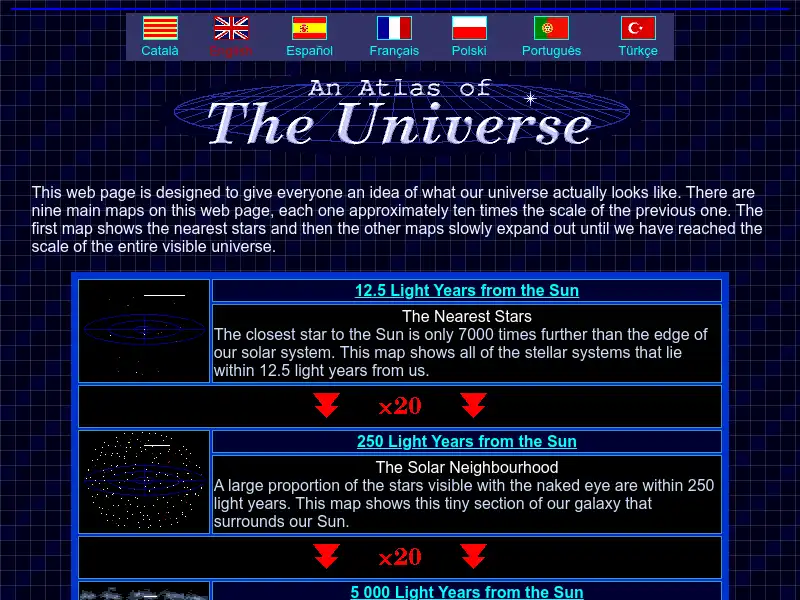
An Atlas of The Universe contains maps of the universe zooming out from the nearest stars to the entire visible universe.
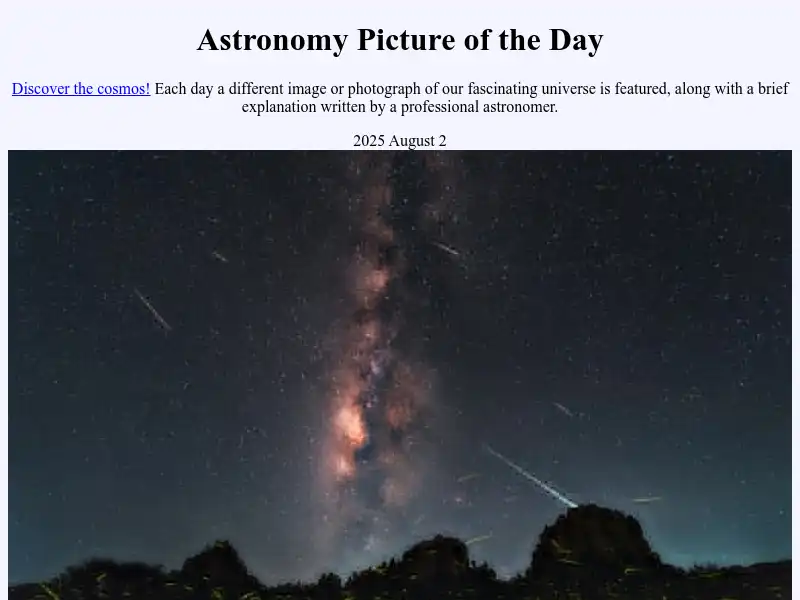
A different astronomy and space science related image is featured each day, along with a brief explanation.
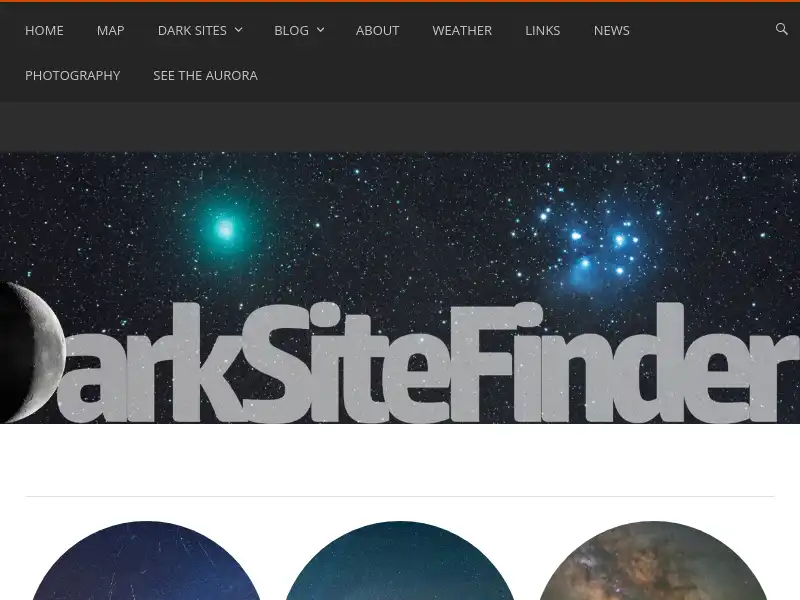
This website was created not only to help people find the few dark skies left, but also to raise awareness of the problem. It’s hard to know what you’re missing out on until you’ve seen it for yourself. In some ways light pollution is easy to fix, because there is nothing permanent about it. Unlike other forms of pollution, it does not remain in the environment once it’s shut off.
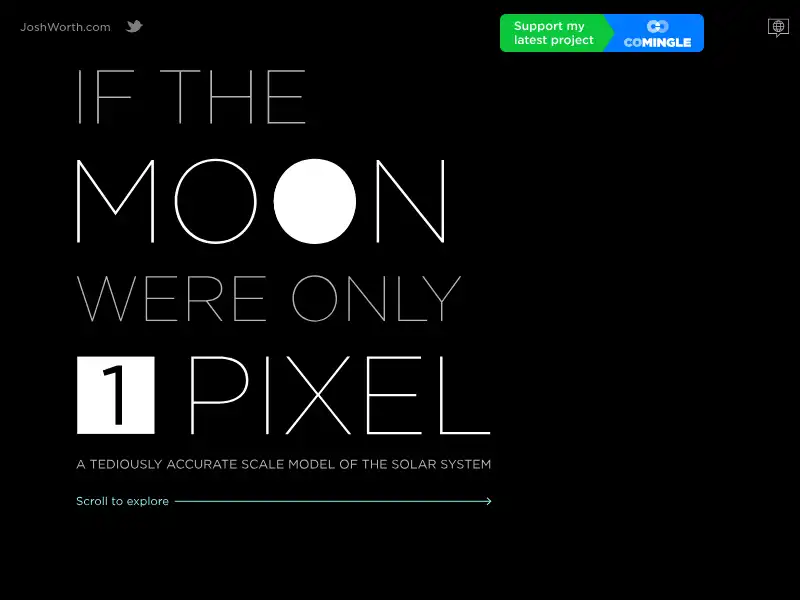
A tediously accurate scale map of the solar system that illustrates the mind-boggling amount of space between planets.
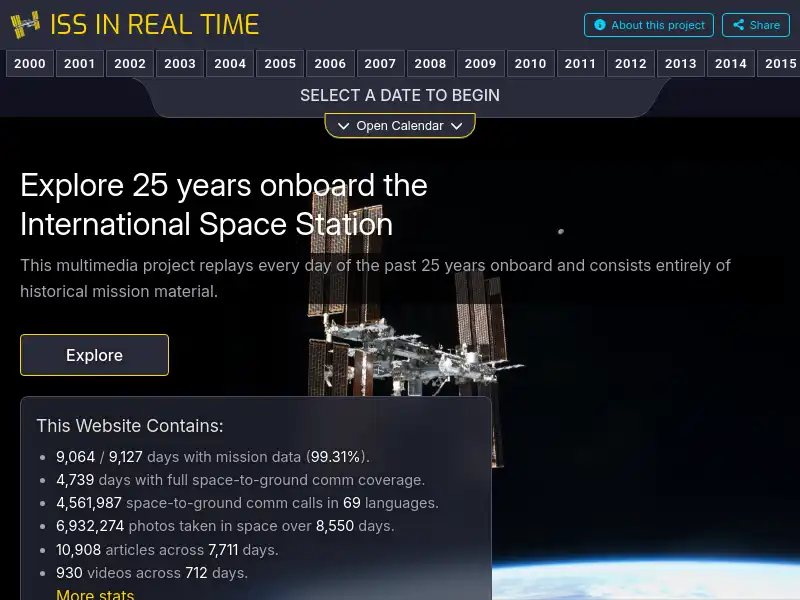
ISS in Real Time is an interactive experience that lets you explore the past 25 years onboard the International Space Station. All data on this website is original, public mission material sourced from across the internet. We have placed the data into mission context so you can experience each day as it happened.
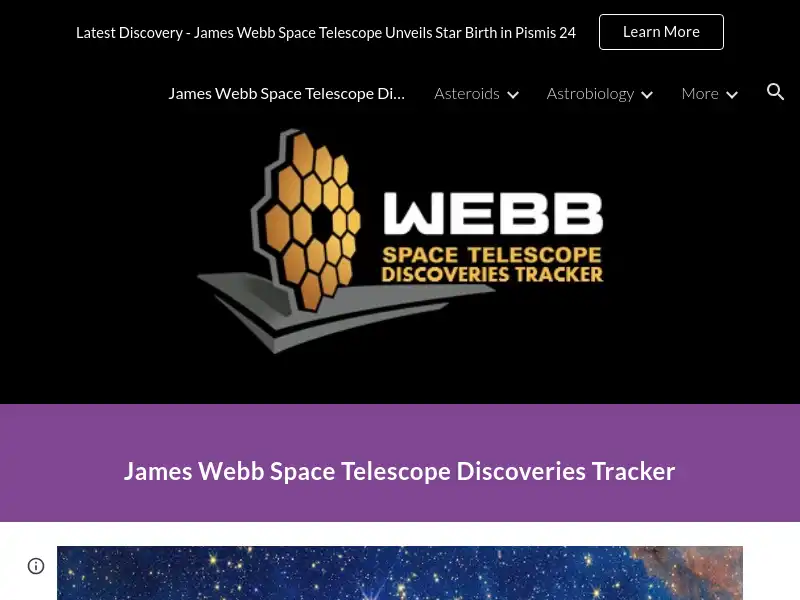
James Webb Space Telescope Discoveries Tracker is your ultimate resource for tracking the breathtaking discoveries made by the James Webb Space Telescope in a seamless, chronological order.
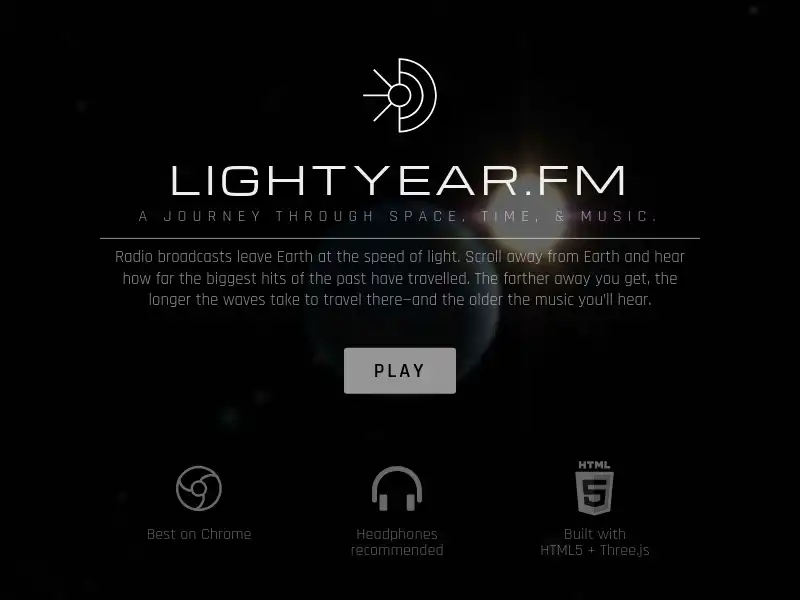
Radio broadcasts leave Earth at the speed of light and travel outwards into space. Follow them through the Milky Way as you scroll backwards through time and listen to what the stars hear.
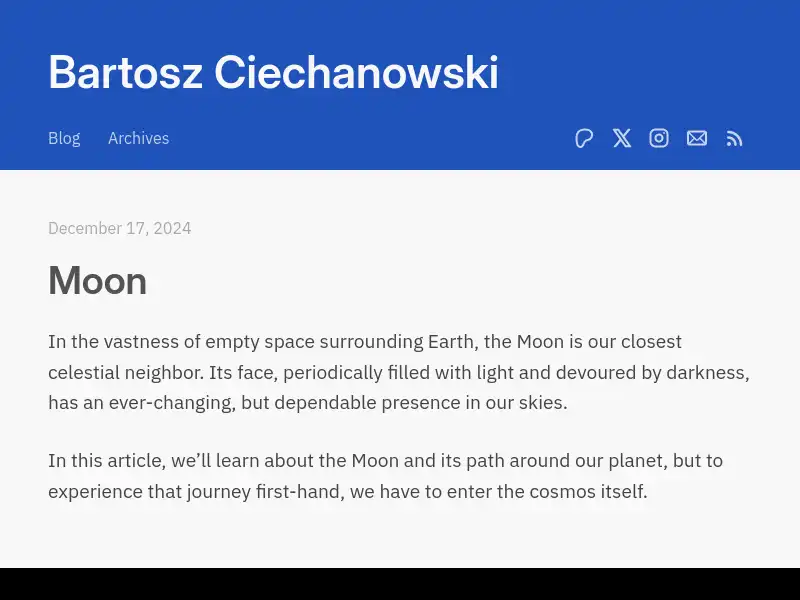
In the vastness of empty space surrounding Earth, the Moon is our closest celestial neighbor. Its face, periodically filled with light and devoured by darkness, has an ever-changing, but dependable presence in our skies. In this article, we’ll learn about the Moon and its path around our planet, but to experience that journey first-hand, we have to enter the cosmos itself.
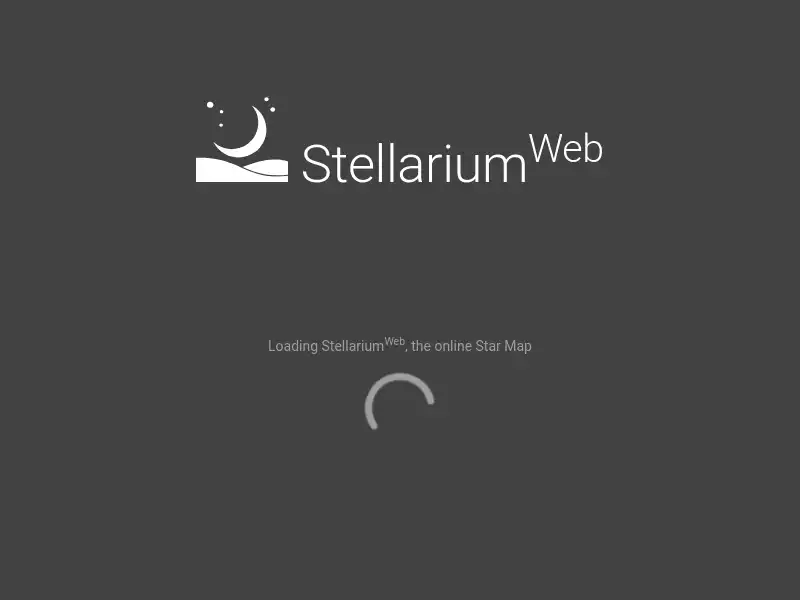
Stellarium is a state-of-the-art astronomical engine providing an accurate night sky simulation based on potentially gigantic amounts of online imaging and sky objects catalogs.
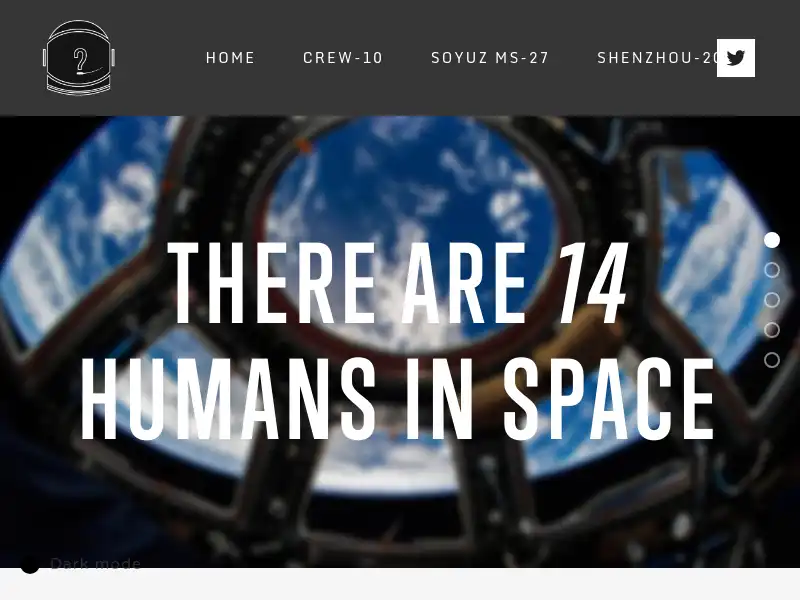
The goal of Who Is In Space is to spread the amazing actions, feats, and words of the men and women currently aboard the International Space Station. The website is constantly updated to make sure you can easily find out how many people are in space.